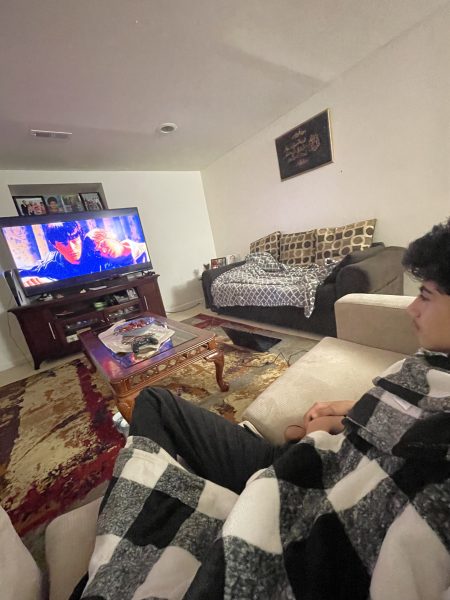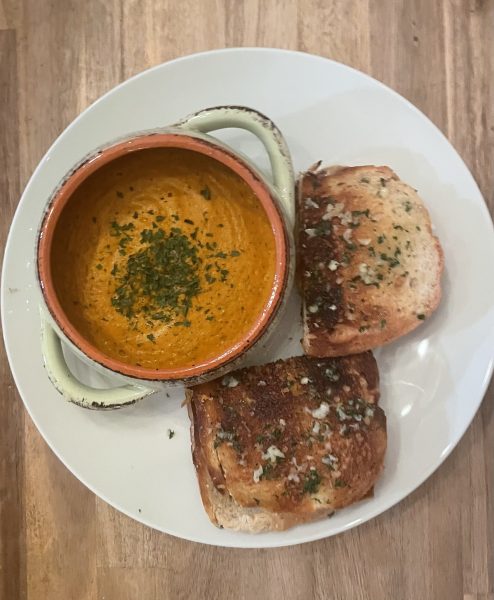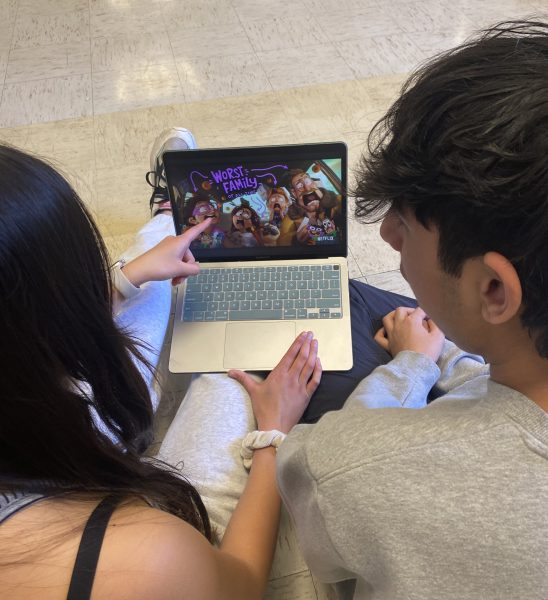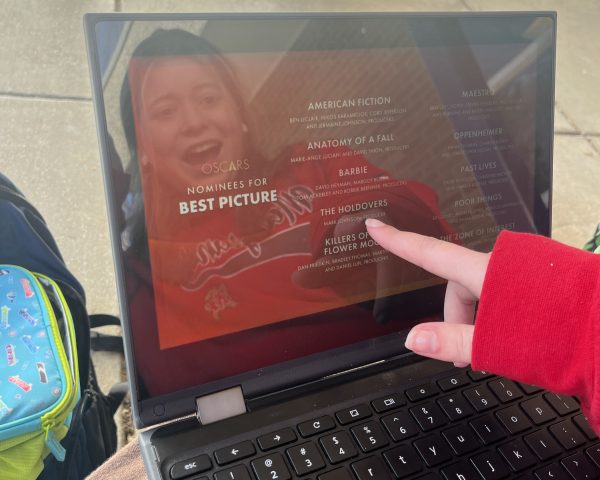Riley Rates: Improving the English language
Photo used with permission from Google Commons
Despite its complexity, the English language has room to improve significantly.
English is a mess. Influenced by Latin, French, Dutch, Afrikaans and others, the language that you’re reading right now is the result of cultural collision and confusion. Spelling is so hard that it’s become a sport, the letter C doesn’t need to exist, “egregious” means the opposite of what it also means and yet we oppose any improvement… until now. Free from the restraints of outdated formatting guides and authoritarian dictionaries, I am here to fix English’s most glaring problems with the Riley Rates 5-star-system. With just a few minor improvements, we can fix the problems that currently plague us in our daily lives.
Supertomorrow (soo-per, -tuh-mawr-oh)
It’s a common scenario: you’re making plans with a friend and they recommend meeting up in two days. Two days? you think. “That’s the day after tomorrow.” You babbling idiot, you buffoon. It took you four words, eight syllables, to clarify a day. If only there was a better way! Don’t worry, I have created a new prefix system with two options. Supertomorrow is what we will now call the dreaded “day after tomorrow.” Alternatively, because the German language already has a solution like this, we could give them credit and use übertomorrow (the umlaut is optional). It may result in long words, but it’s fun to say. 3 stars.
It doesn’t end there, however. Using the “super-” or “über-” prefixes could solve more problems than just the future. We can fix the past too, referring to “two days ago” as superyesterday. It’s intuitive, fun, and einfach zu verwenden.
Yee (yē)
Let’s set the scene: your friend Cara asks you what you are doing later. You tell Cara that you have to babysit your cousin tonight. Cara, previously ready to invite you to the absolute rager party she’s throwing, is disappointed to hear that you won’t be able to make it. So she says, with the tone of a question but the format of a statement, “Oh, so you won’t be able to come to my party then.” You, like the inarticulate dullard simpleton you are, reply with “No.” This reply could mean two opposing things; either you are confirming Cara’s suspicion that you are unable to attend, or you are contradicting Cara’s assumption that you can’t go. But if you say “yeah” Cara might ask for further clarification on your response, as it could really mean anything. As I have said before, there has to be a better way!
Look no further than the most elegant solution I could come up with: yee. Yee is the perfect word to use when a person asks for clarification on their assumption rather than an answer. So when you are at Burger King and your friend Mohammed (who knows how much you hate mustard) says “So I assume you don’t want that nasty yellow discharge on your Double Stacker King,” you don’t have to sound like a fumble-mouth halfwit nincompoop with your vague and useless response. Instead, say yee, to confirm what Mohammed already thinks he knows about you. This might be a niche issue but the solution is elegant. 5 stars.
Juvenialating (joo-vuh-nl, -nahyl, -ey-ting)
It may be a mouthful, but this word has potential. Say you’re watching Saturday Night Live one night and your parents cannot top haggling the younger-than-30 musical guest for not sticking to the established conventions of ‘70s classic rock. The next day, you’re minding your own business, listening to the new SZA single, a Daniel Caesar album, or maybe your favorite Tame Impala project when your dad busts into your room to ask you to shovel the driveway and exclaims “What is this? Is this Bill Eilish? Is this Mark Demarco? This new music… if you could call it that! The golden era is behind us.” This situation is all too familiar, and with no perfect word to formulate a response around, we youngins are left to shamefully keep new music to ourselves… until now.
Based on David Finkelhor’s “juvenoia,” an unofficial phobia of youth and new things, “juvenialating” is the act of behaving in a manner that displays such irrational fears of new art. So next time an elder espouses irrational hatred on the art you love so dearly, skip the “Ok Boomer” because all the kids are saying “Quit juvenialating.” 3stars.
Your donation will support the student journalists of Thomas S. Wootton High School. Your contribution will allow us to purchase equipment and cover our annual website hosting costs.
Riley Jordan is a 2021 graduate.
















